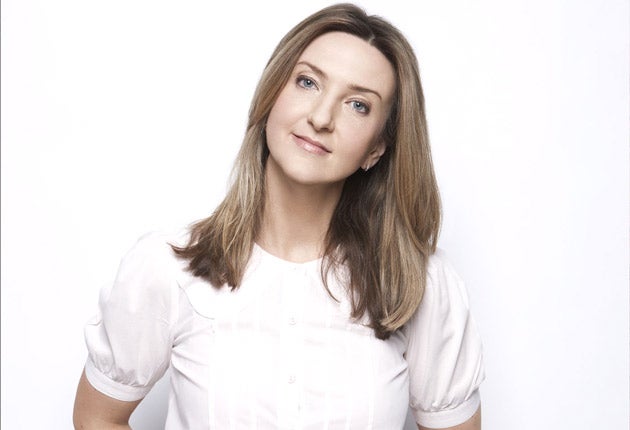The Week in Radio: So-so grammar puts sensitive listeners in a spin

Your support helps us to tell the story
From reproductive rights to climate change to Big Tech, The Independent is on the ground when the story is developing. Whether it's investigating the financials of Elon Musk's pro-Trump PAC or producing our latest documentary, 'The A Word', which shines a light on the American women fighting for reproductive rights, we know how important it is to parse out the facts from the messaging.
At such a critical moment in US history, we need reporters on the ground. Your donation allows us to keep sending journalists to speak to both sides of the story.
The Independent is trusted by Americans across the entire political spectrum. And unlike many other quality news outlets, we choose not to lock Americans out of our reporting and analysis with paywalls. We believe quality journalism should be available to everyone, paid for by those who can afford it.
Your support makes all the difference.These are tough times for pedants like me. Like people with extra-sensitive skin, it takes only minuscule grammatical mistakes to make us flinch and squirm. There are some to whom a split infinitive is like biting on silver foil and others who spend their days shouting, dementedly, "fewer" at politicians who can't hear them. Almost daily, fresh horrors rise from the radio like the screech of chalk on a blackboard, and one of the most recent is "so". Why should so many interviewees begin their answers with this apparently incongruous word?
Until now, "so" has been chiefly used as a conjunction, intensifier or adverb. Now it muscles in right at the beginning of answers where it would seem to have no place. As in, "So the explanation for the financial crisis is..." It seems especially popular with academics, but why? American linguistic studies suggest the habit evolved from Silicon Valley, because "so" appeals to problem solvers and suggests that conversation is a logical process, moving in a single direction like software code. Another idea is that "so" suggests authority, rather than "well" which suggests namby-pamby hesitation, and that "so" fits well with the declamatory tone of the Facebook generation.
To which the only answer is, "Whatever". Radio pedants will just have to suck it up. Any student of the English language knows it is an organic thing, neologism is its lifeblood and it thumbs its nose to rules. Usage is all.
But the correct usage of words doesn't just provide distraction for pedants. In 15 by 15, Hardeep Singh Kohli has got a whole series out of it. His exploration of single words has sometimes been over-contrived but "spin" was a good choice, taking us all the way from the cosmos to hip-hop via Alastair Campbell. Singh Kohli travelled to the New Lanark heritage site on the Clyde to see water-powered spinning wheels, and interviewed Christopher Martin-Jenkins on the origin of the googly. "In 1900 Bernard Bosanquet, a distant relative of Reginald, learnt the art by playing a game of Twisty Grab on a snooker table in which he learnt this ball out of the back of the hand which was apparently going to turn from leg to off, actually turned from off to leg and became the googly." Simple, really. Yet the word "spin doctor" comes from baseball. Well, you always knew it wasn't quite cricket.
So onwards to 5Live's Victoria Derbyshire, whose exploration of the single word "rape" with Kenneth Clarke provided acres of headlines last week. This week, there was more emphasis on the careful use of language with the injunction hoo-ha and it was to Derbyshire's credit that she never dodged these complex issues on the show, even when the legal terminology must have caused some listeners to leak away. Inviting lawyers to hold forth is always a risk on radio. They rarely use one technicality where two will do, but on Friday she had two lawyers on the subject of injunctions and she returned to the issue on Monday and Tuesday.
But then Derbyshire is unusual among talkshow hosts. She has a distinct neutrality about her, a sane and level tone which never implies callers are mad even when they are, and appears relatively free of the urge to interrupt. And May has been a heady month for her. Not only did her show win a Sony Gold but it was to her that a caller called Tony poured out his heart about the recent breakdown of his marriage, caused by an addiction to 5Live. "My wife used to say to me, 'How can you listen to that constant chatter all the time? It drives me completely mad?" Tony complained. Proof, if it was needed, that radio produces strong reactions. But some of us already knew that.
Join our commenting forum
Join thought-provoking conversations, follow other Independent readers and see their replies
Comments